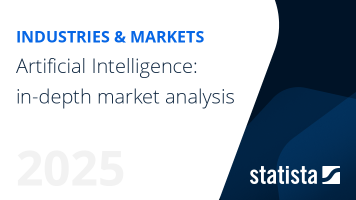Text-based NLP - Benelux
Benelux- The market size in the Text-based NLP market is projected to reach US$136.60m in 2024.
- The market size is expected to show an annual growth rate (CAGR 2024-2030) of 26.12%, resulting in a market volume of US$549.80m by 2030.
- In global comparison, the largest market size will be United States (US$2.19bn in 2024).
Definition:
The Text-Based Natural Language Processing (NLP) market covers tools that process and analyze human language in text form that include text classification, sentiment analysis, and language translation tools. The Text-based Natural Language Processing (NLP) market has relevance for the e-commerce, healthcare, and finance industries in the areas of customer service, content analysis, and fraud detection.
Additional Information:
The market comprises two key performance indicators: market sizes and market sizes by industry. Market sizes are generated by the funding amount of Computer Vision companies. Key players of the market include companies such as Amazon Web Services (AWS), Microsoft Azure Cognitive Services, and IBM.
For more information on the data displayed, use the info button right next to the boxes.
In-Scope
- Text classification applications capable of sorting news articles into sports, politics, and/or business categories
- Sentiment analysis tools for social media posts and product reviews.
Out-Of-Scope
- Speech recognition tools (e.g., transcriptions of phone conversations, speeches
- Image recognition tools (e.g,. identification of faces in photographs)
- Audio or music processing tools (e.g., identification of songs/artists from audio clips).








